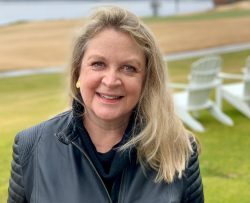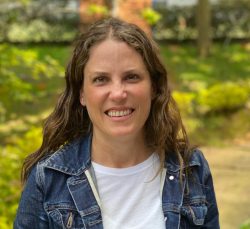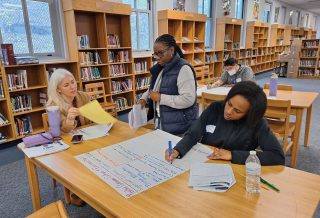FOCUS
ONLINE EXCLUSIVE: Bilingual program builds a bridge to equity
By Barbara Noel, Maria Patricia Mesa and Vanessa Gilchrist
Categories: Early education, English learners, International perspectives, Learning communities, Learning systems/planningApril 2021
Read the remaining content with membership access. Join or log in below to continue.
Sed ut perspiciatis unde omnis iste natus error sit voluptatem accusantium doloremque laudantium, totam rem aperiam, eaque ipsa quae ab illo inventore veritatis et quasi architecto beatae vitae dicta sunt explicabo. Nemo enim ipsam voluptatem quia voluptas sit aspernatur aut odit aut fugit, sed quia consequuntur magni dolores eos qui ratione voluptatem sequi nesciunt. Neque porro quisquam est, qui dolorem ipsum quia dolor sit amet, consectetur, adipisci velit, sed quia non numquam eius modi tempora incidunt ut labore et dolore magnam aliquam quaerat voluptatem.
6 linchpins for adaptive change
Our work in the second year of our PLC is based on a framework for collaborative inquiry that can be described around six linchpins for adaptive change (Donohoo & Velasco, 2016). They are:
- Voluntary participation. All biliteracy coaches, Learning Center specialists, teachers, and administrators are invited, not mandated, to be involved, and participation is based on commitment versus a sense of compliance to management.
- Shared leadership. The director and associate director for learning & teaching initiated and support this work. Their involvement and collaboration was pivotal for building the necessary trust to open up sincere conversations among teachers. Responsibility has now passed to the primary and elementary school principals and the national program director who oversees the Spanish program. The biliteracy coaches have also been invited to lead because their role is critical in supporting sustainable change through an inquiry and data-informed stance.
- Guided from experience. We relaunched our PLC from an appreciative inquiry orientation to re-establish trust and build from the solid experience, skills, and talents of our group members. We began by exploring teachers’ observations, dreams, and discoveries of what is already working well. Therefore, we are starting our inquiries on an asset-based vs. a problem-solving stance.
- Achieved coherence. While senior leadership initiated the school improvement process in a top-down manner, responsibility and ownership have now shifted to teachers through an organic, grassroots process. We are forming inquiry teams based on teacher questions about their own classroom practices. In this way, we achieve a balance between institutional and teacher-driven interests.
- Learning is recognized and disseminated. We communicated the results from the first year of the PLC to the entire school community. This led the teachers toward greater engagement with the purpose and vision of the PLC because it honored the balance of top-down and bottom-up processes of change. This ought to continue as the collaborative inquiry cycles reach shareable conclusions.
- Skilled facilitation. We have followed a nested model of support to promote greater chances of success. At first, an outside consultant worked mostly with senior leadership. Ownership passed to the primary and elementary school principals and the national program director. The consultant facilitates planning meetings, orients the leadership team, and monitors the participation of the larger PLC team. This allows the principals and director to focus on facilitating the meetings. The biliteracy coaches, in turn, work directly with the inquiry teams to apply new practices and push thinking as teachers critically analyze impacts on student learning. This depth of support promises to enable our professional learning to spread across the community and improve sustainable change processes.
References
August, D. & Shanahan, T. (2006). Developing literacy in second-language learners: Report of the national literacy panel on language-minority children and youth. Lawrence Erlbaum Associates.
Colegio Nueva Granada. (2017). Annual report 2016-2017. Author.
Donohoo, J. & Velasco, M. (2016). The transformative power of collaborative inquiry: Realizing change in schools and classrooms. Corwin Press.
Escamilla, K., Hopewell, S., Butvilofsky, S., Sparrow, W., Soltero-Gonzaléz, L., Ruiz-Figueroa, O., Escamilla, M. (2014). Biliteracy from the start: Literacy squared in action. Caslon Publishing.
International Literacy Association. (2019). The role of bilingualism in improving literacy achievement. Author.
Lara, M. (2017). ¡Toma la palabra! Seidlitz Education.
Categories: Early education, English learners, International perspectives, Learning communities, Learning systems/planning
Recent Issues
NAVIGATING NEW ROLES
April 2025
Read the remaining content with membership access. Join or log in below to...
LEARNING DESIGNS
February 2025
Read the remaining content with membership access. Join or log in below to...
BUILDING BRIDGES
December 2024
Read the remaining content with membership access. Join or log in below to...
CURRICULUM-BASED PROFESSIONAL LEARNING
October 2024
Read the remaining content with membership access. Join or log in below to...














